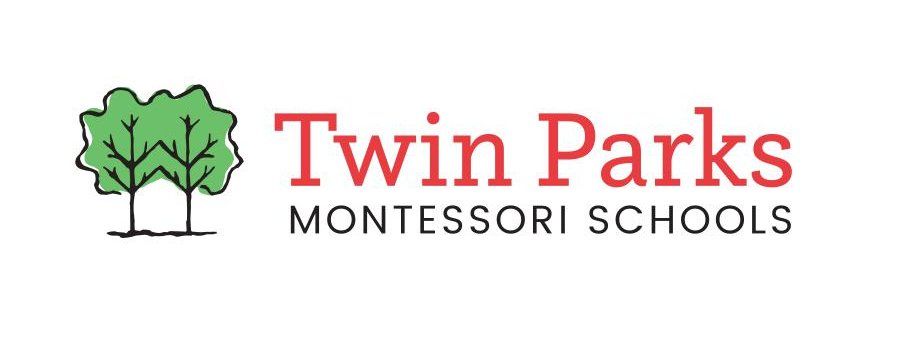Newsletter - January 6, 2023
Dear Families,
Happy New Year! It was so nice to see everyone again!
Over the next few weeks, we have several parent programs coming up. During this month, you will be invited to come into the classroom to work with your child. This is an exciting event as all of the parents have a special time to visit the classroom. Your child will show you their work in several areas of the classroom. At the end of the month, we are also are hosting Stepping Up Parent Education Events. Watch for your invitation. These sessions will help you learn about what happens at the next level of your child's Montessori journey. Teachers from each area will provide an overview of each program, pointing out the developmental elements that change at each level. Parent Teacher conferences are on February 10. We look forward to sharing information with you about your child. Teachers will invite you to sign up for a time to meet with them. We also have several other parent education workshops on food, speech, and toilet learning that I will let you know about in the next newsletter.
Our teachers have two professional development events coming up this month. We are renewing our CPR and First Aid certifications, and we have a Teacher Art Workshop, presented by Scribbles who has been conducting our Artist in Residence program. In March, we are sending 10 teachers and staff to the national American Montessori Society conference in Boston. This 4-day conference with over 4000 attendees features keynote speakers Ibram X. Kendi, Chris Barton, Susan David and Jamil Zaki as well as over 100 workshop sessions.
For our children, we have a couple of school wide events in addition to Work with Your Child. The Therapy Dogs coming to visit again. We are also having the NYC Fire Department come in to do a Fire Safely program for the Early Childhood children.
We are working on re-enrollment and summer information and hope to get information to you within the next two weeks!
We are thankful to have your children and family as a part of our Montessori community.
Sincerely,
Susan
Susan Kambrich, Ed.D.
Executive Director
Twin Parks Montessori Schools
Toilet Learning the Montessori Way
One of the most important milestones for a toddler is completing the toilet learning process. Children feel a sense of pride, accomplishment and control when they successfully use the toilet. The toilet learning process begins in infancy. Young children are shown their diaper, given the opportunity to feel it for wetness and are spoken to about the process. Infants are changed frequently as this helps them to distinguish between the sensations of wet or soiled and dry. As children get older they become more a part of the process as their diaper is now changed standing up and in the bathroom. Children are asked to pull down their own pants, help to pull the tabs to remove their diapers and are always given the opportunity to sit on the toilet before having a new diaper put on. If a child has soiled their diaper, the bowel movement is put in the toilet and the child is allowed to flush as it is explained, “This is where poop goes.” When they are finished children are always expected to wash their hands, thus completing the process. Establishing a routine helps to develop a child’s sense of comfort with the toileting process. While most children show signs of interest and readiness between 18 and 24 months, it is important to remember that children develop at different rates. Some signs of readiness include:
PHYSICAL
- Staying dry for longer periods of time
- Ability to dress and undress independently
- Can get themselves to the toilet
LANGUAGE
- Asking to have diaper removed after wetting or soiling
- Ability to follow directions
- Understands words about the toileting process
- Verbally expresses interest in using the toilet or wearing underwear
EMOTIONAL
- Seeks privacy when going in diaper
- Wants to sit on the toilet
- Shows curiosity in other people’s toilet habits
When children show consistent signs of readiness it is time to transition from diapers to underwear. Take your child to the store and allow them to pick out a package of underwear, heightening their excitement. Talk to your child about what it means to wear underwear, explain that they will use the toilet throughout the day and select a day together that they will no longer use diapers. On this day have your child dress themselves in underwear and clothes that are easy for them to pull up and down independently. Pants with snaps or buckles, belts, suspenders, onesies and tights are very challenging for children and may increase the likelihood of accidents. Do not use pull-ups as a transition between diapers and underwear. Pull-ups are very absorbent and therefore children do not feel as though they need to be in control of their bodily functions. Pull-ups give children the message that they are still in diapers, whereas underwear is very empowering since they signify to children that they are growing up.
Every 15-20 minutes have your child independently complete the bathroom routine you have established; pull down their pants, sit on the toilet, flush if necessary and wash their hands. As you begin to learn your child’s natural tendencies you can lengthen the amount of time between bathroom trips. There should be times that using the bathroom becomes part of the routine such as before you leave the house, before taking a bath, after meals, before going to bed and after waking from sleep. Avoid using a potty-chair at home. Instead find ways to make the toilet more accessible to your child. Beginning on the toilet provides your child with one less transition to make as he or she masters this skill. It should be expected that children are going to have accidents during the toilet learning process. Children often need to feel the discomfort of wet or soiled clothing before they can be successful. When accidents happen remain calm, do not overreact. It is just a part of life and children need to experience toileting in a positive framework. Say to them, “It’s ok. Let’s try again.” Include children in the process of changing their wet clothes. Have them remove the wet clothes and put them in a laundry basket. Give them a wipe or wet cloth to clean their bodies and allow them to redress independently. Before removing diapers overnight observe for dryness for 2 weeks. Begin to limit liquids before bedtime and encourage children to use the toilet one hour before bedtime and right before going to sleep.
As with the development of all new skills, the toilet learning process may take several weeks or even months for children to master. It is not uncommon for children to use the bathroom only when reminded or to have moments of regression, especially when they are under emotional stress due to events such as a move, change in schedule, trip or the birth of a sibling. Teamwork is key to helping children be successful. All adults involved in the child’s life (parents, teachers and caregivers) should develop a plan that is specific to each child’s individual strengths and needs. Stick to the plan. Inconsistent expectations are very confusing to children and may delay their success. Consistency, patience, encouragement and love are the keys to toilet learning success.
Please spread the word about our Open Houses!

Upcoming Events
- All January: Work with Your Child! (Teachers will schedule this with each family)
- Monday, 1/16 Martin Luther King, Jr. Day School Closed
- Friday, 2/10 Parent Teacher Conferences- School Closed

